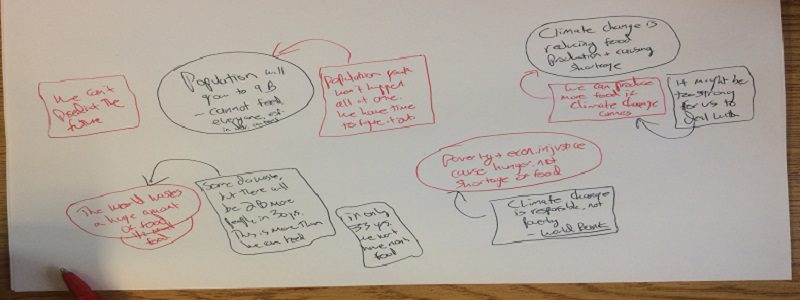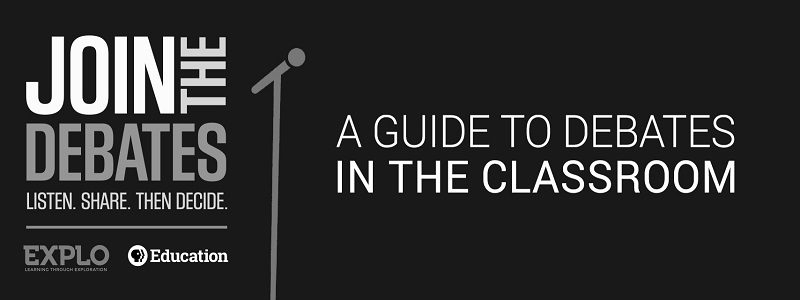The Atomic Bombing of Japan, Document-Based Debates, and Close Evaluation of a Flow Sheet Model
This is a comprehensive argument-centered mini-unit on the United States’ decision to use atomic bombs against Japan at the end of World War II. Students study this momentous decision and its consequences through videos, primary documents, and analytical essays. They use these sources to formulate and build out arguments on the fundamental and enduring debatable question:
Was the United States justified in using atomic bombs against Japan in World War II?
Simultaneous table debates take place on this issue across the classroom. These debates are followed up with a focus on the academic means and methods that are used to evaluate competing arguments on a complex, rooted, significant controversy such as the historical question that envelopes America’s use of atomic weapons in WWII. Students conduct one-on-one argument evaluation, using a model debate flow sheet. Then they conclude the mini-unit by evaluating the argumentation in a fully modeled debate and its tracking form.
Shaping Arguments: Feedback to Particular Patterns of Student Practice
We have been working with partner middle schools on the argument-based science/social studies project, called Shaping Arguments on Natural Resources. The Debatifier posted on this project recently. We have observed certain patterns of student practice in the implementation of this project, patterns that have elicited some of our feedback “analytics,” which we think may be of interest to the broader educator community using argumentation in the classroom.
The patterns of student practice itemized really do transcend the science/social studies content in this project (on whether the world faces a severe shortage of specific natural resources), and they also transcend the grade levels in which our partner schools have so far implemented it — both because Shaping Arguments on Natural Resources can be readily adjusted for implementation in high school, and because the patterned strengths and weaknesses that students have revealed are common to students across grade levels.
Tackling the Immigration Issue in Micro-Macro Debates (Pt. 2)
Overview
We have helped support partner schools in tackling the immigration issue in Micro-Macro Debates this school year, and we have observed patterns in student academic performance and teacher implementation practices that we’ve shared with those schools. Regular readers of The Debatifier might recognize this technique — one that we both employ in our partnerships and encourage partner teachers to use in their classrooms — as the “analytics” that are a form of direct feedback to students around themes of proficiency and deficiency demonstrated in a classroom.
SPAR Debate: A Format for Rigorous, Real, Ready-to-Go Debating in Class
Overview
SPAR Debate is an excellent way to introduce students to debating in the classroom. It’s an activity for getting students initially exposed to debating, but also for isolating and introducing the key elements of academic argumentation.
SPAR is short for Spontaneous Argumentation debates. The term connotes, too, some of the jousting and practicing that we think of as “sparring.” SPAR Debate can be used with minimal research, and is therefore a very good format for getting students up and arguing. SPAR Debate can be used with academic issues, as a way to begin to immerse students in curricular content, or with non-academic (“fun”) issues, as a way to focus on debating format and individual argumentation skills.
Review of PBS Learning Media Election Central Resources
PBS Learning Media just posted its 2016 Presidential Debates curricular resources.
Its collaboration with We the Voters (an advocacy group formed by persons in the media concerned with civic and voter engagement, especially among teens and young adults) emphasizes rhetorical techniques — e.g., ad hominem attacks, sowing doubt, false equivalency — debaters use to evade rigorous argumentation.






